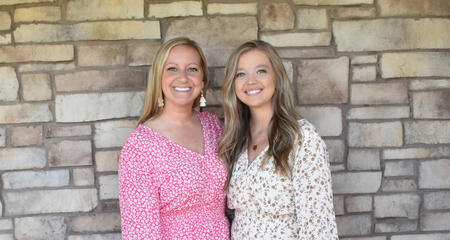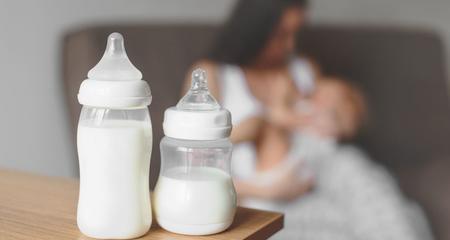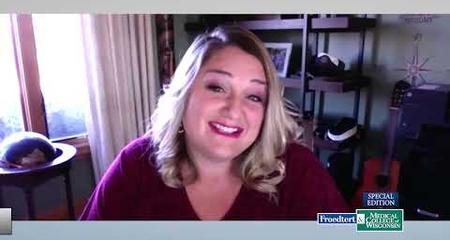We’re here to support you on your parenting journey. Use these checklists to prepare for your baby.
Pregnancy Checklist
In the time leading up to your delivery, you can get organized and be ready when you go into labor.
- Choose your care provider and begin prenatal care. Regular prenatal care is important for a healthy pregnancy and healthy baby and helps you prepare for labor and delivery. Families can choose from obstetricians, family practice physicians and certified nurse midwives.
- Choose a doctor for your newborn and schedule a "get acquainted" visit. Families typically choose a pediatrician or a family practice physician to care for their newborn. Use our Find a Doctor function to identify providers near you. Many physicians offer a complimentary "get acquainted" visit so you can get to know each other before the baby arrives.
- Sign up for prenatal education. Take advantage of our childbirth, breastfeeding and newborn care classes. Review the educational information you received from your health care provider.
- Plan ahead for your childbirth options and preferences. Take time before delivery to think about things that will be important to you in childbirth. Plan ahead for things like support people, desired visitors, your notification list, pain control preferences, details about music and lighting, your decision about breast or bottle feeding and much more. Discuss your preferences with your caregiver well before your delivery and express your wishes when you arrive for delivery.
- Verify your health insurance and billing information. For more information, visit the Insurance and Billing page.
- Plan your trip to the hospital. As your due date gets closer, test your route to the hospital. It’s a good idea to plan one or two alternate routes too, in case of traffic, bad weather or road construction.
What to Bring to the Birth Center
Our birth center rooms are well-appointed, but you’ll almost certainly want some things from home to make your stay more comfortable. We recommend packing a bag at least four to six weeks before your expected due date. Here are some things you may want to include.
- Labor support items, such as massagers, oils or special music
- Robe and slippers
- Nightgown/pajamas (If you plan to breastfeed, nightgowns that button or open in the front are most convenient.)
- Undergarments, including nursing bras and pads if you plan to breastfeed
- Personal care items, including toothbrush, toothpaste, deodorant, hair products and makeup, if you like
- Glasses/contact case and solution, if needed
- Contact information for family and friends
- Camera/batteries/charger/memory cards
- Phone charging cord
- Change for vending machines
- Going home outfit (Pack something loose and comfy. Many moms go home in maternity clothes or loose-fitting sweats or yoga pants.)
- Change of clothes/personal care items for dad/support person
- Going home outfit for baby
- Undershirt/onesie for baby
- Hat/extra blanket for baby, depending on weather
- Car seat for baby’s trip home
Bringing Baby Home from the Hospital
Here are some things to keep in mind as you prepare to leave the Birth Center and head for home with your baby.
- Paperwork and legalities. Adding a new person to the world requires some paperwork and screenings. Before you leave, the Birth Center staff will make sure you have taken care of these requirements and opportunities.
- Baby’s birth certificate
- Newborn screening
- Hearing screening
- Birth announcement
- Traveling home. The American Academy of Pediatrics recommends the use of an approved car seat for all infants traveling home via motor vehicle. As there is a wide variety of infant car seats and vehicles on the market today, we strongly recommend purchasing the car seat and practicing proper installation of the car seat well before your baby’s expected birth. Car seat fitting assistance and information is available at numerous locations in southeastern Wisconsin. A staff member or volunteer will assist you and your family to your vehicle; however, you will be responsible for securing your infant in the car seat.
- Breastfeeding support. It’s not unusual to face breastfeeding challenges at home. Our lactation consultants are available by phone or appointment to answer your questions about breastfeeding, breast pump rental or purchase and other topics.
- Adjusting to life with a new baby. After delivery, it can take at least six weeks for your body to adjust to not being pregnant. Lifestyle and emotional adjustments may be ongoing. Ask your provider about topics as:
- Changes in your body after childbirth
- Self-care
- Pain control
- Breast care
- Rest
- Nutrition
- Care after cesarean section
- Adjusting to life with a new baby
- Postpartum depression
- Six-week postpartum check-up. Your health care provider will want to see you for a check-up approximately six weeks after birth. Your baby should have his or her first well-child check within the first month after birth as well. However, don’t hesitate to call your health care provider or your baby’s health care provider if something doesn’t seem right before then. It’s completely normal for new parents to have a lot of questions.
More Support
Don't forget to review our breastfeeding information and to sign up for your childbirth and parenting classes.
If you're experiencing back pain during your pregnancy, ask your doctor if you should speak to our SpineCare team.
Pregnancy and Birth Resources




